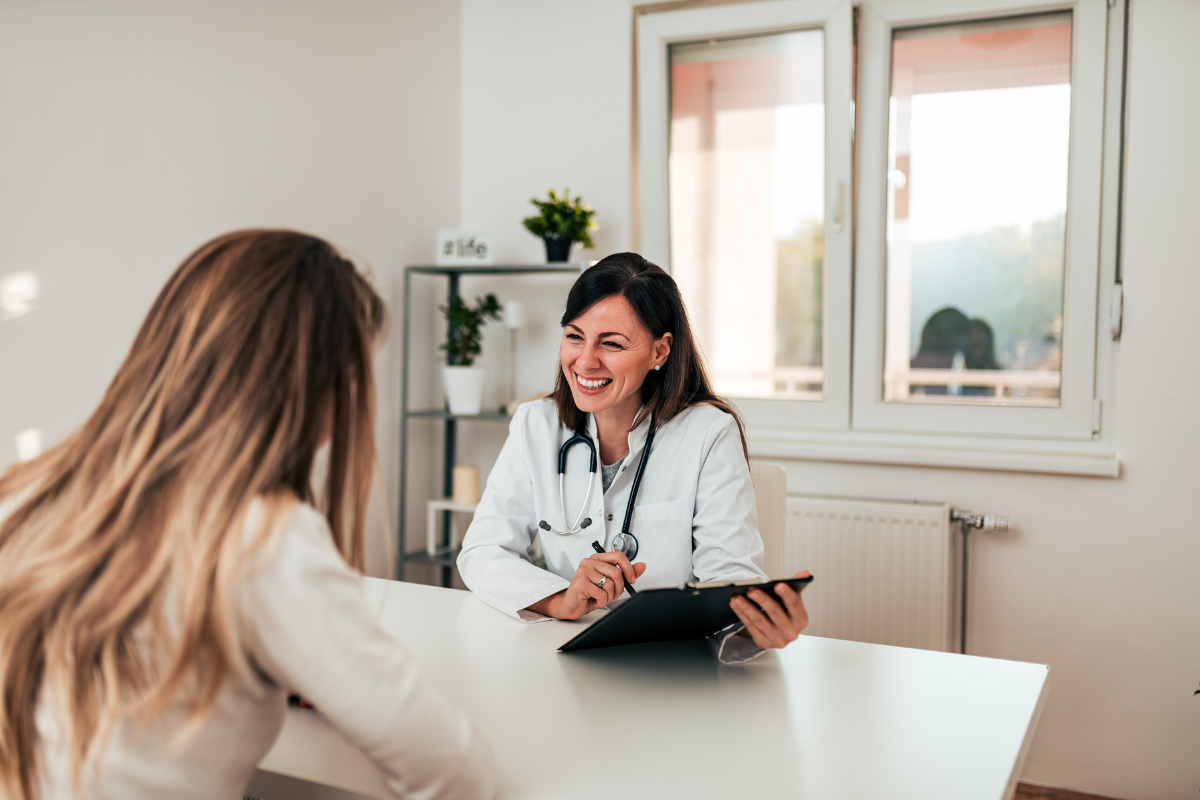
Contrary to what some people may believe, endometriosis is not simply characterised by heavier-than-usual periods. This condition, which affects 1 in 10 women globally, is often misunderstood and discussed far less often than it should be as an extremely prevalent women’s health issue. This means that those with the condition often face a silent battle to get diagnosed (this can take 7.5 years from the onset of symptoms), but it’s important to remember that research and knowledge of endometriosis is continuing to develop and progress, and that there is help available if you need it.
20-25% of women with endometriosis are asymptomatic, but common symptoms stretch far beyond menorrhagia (heavy and prolonged bleeding) and include:
- Painful cramps which may get worse over time
- Pain during or after sex
- Bleeding between periods (spotting)
- Painful bowel movements and urination
Some women with endometriosis may also experience more unusual symptoms, which can make diagnosis even more difficult and prolong finding a suitable treatment. The symptoms of this condition can regularly affect daily life, impacting work, leisure time and even relationships.
Dr Ghazala Aziz-Scott at the Marion Gluck Clinic explains, “there is a preconception that heavy and painful periods are normal, and as a result many women will put up with severe symptoms. We now know that, for women, the health of the menstrual cycle is almost a fourth vital sign. Cycles that are irregular, heavy and cause severe pain can tell us that something is wrong with a patient’s health. But unfortunately, these symptoms are often dismissed, or the patient is prescribed the pill, which masks symptoms rather than establishing the underlying cause.”
Here, we take a look at the more unusual symptoms of endometriosis, and how the condition may impact daily life in unexpected ways.
1. Fatigue
Fatigue is a feeling of exhaustion and tiredness that is far more severe than what you might experience during the 3pm post lunch slump. It may be impossible for you to carry on as normal with your day, and you may have the constant urge to sleep. Unfortunately, this symptom can be dismissed as laziness, but it is important to remember that fatigue and excessive tiredness are not normal and should be investigated.
2. Acne
Similarly to other hormonal conditions such as Polycystic Ovary Syndrome (PCOS), women with endometriosis may also find that their skin is more susceptible to acne breakouts, even if they are in their twenties to forties. The two conditions are more closely related than you might think, with one study revealing that women who had severe teenage acne were 20% more likely to develop endometriosis than those who did not.
Acne can be difficult to treat with over-the-counter face washes and creams. However, hormone balancing and addressing gut health can support treatment for this endometriosis symptom.
3. Infertility
Although endometriosis does not cause infertility in all cases, endometrial tissue can cause scarring around the ovaries and fallopian tubes, causing damage which can lead to infertility. In addition, there is also a risk of infertility as a result of surgery to remove endometrial tissue in this area. That being said, in most cases, natural conception is still possible in those with the condition.
4. Depression
There is a risk of depression with many long term medical conditions, and endometriosis is no different. Combine misdiagnosis, delayed diagnosis and prolonged painful symptoms, lack of treatment options and feeling like there is little support or dialogue surrounding the condition, it is no wonder how many women suffer from depression as a result.
5. Urgency To Urinate
Endometriosis may be mistaken for a UTI or other bladder problem if endometrial tissue is active around the bladder, as this can cause a feeling of urgency to urinate, as well as pain in this area during menstruation, and pain when peeing.
6. Bloating
Bloating is actually so common in endometriosis sufferers that it has its own name: ‘endo belly’. Endometriosis can cause inflammation in the gastrointestinal tract, which can result in persistent bloating, as well as nausea and flatulence, especially after eating.
7. Acid Reflux
Both endometriosis and the regular use of pain medication to relieve endometriosis pain can be the cause of acid reflux. Endometrial tissue within the gastrointestinal tract can cause inflammation and dysbiosis which can disturb the equilibrium of the gut and other intestinal functions before and during menstruation.
What To Do If You Have Symptoms Of Endometriosis
Endometriosis is not just a hormonal condition, but it is closely linked to hormonal health. The condition is a whole-body inflammatory disease, and immune dysfunction is at its root. The immune system is dysregulated and is prevented from clearing abnormal endometrial deposits and cells from the body, with the causes of the condition being:
- Genetics – having a genetic predisposition to the condition
- Epigenetics – how the gene expression is affected by the environment
- Gut dysbiosis – overgrowth of bad bacteria in the gut (women with endometriosis have high levels of gram-negative bacteria, which comes from the gut, in their pelvis)
In conventional medicine, the standard treatment for endometriosis is surgical or medications to block ovulation. However, if it is possible to determine the root cause of the condition, complications of endometriosis requiring surgery may be prevented. By treating the immune system holistically (for example, undertaking an elimination diet and taking supplements that aid immune modulation), we can calm the inflammatory response and improve the immune response.
Hormone treatment may also be explored, especially for those who are estrogen dominant. Some women may be estrogen dominant because they produce too much of the hormone, cannot effectively clear it from their bodies, or they do not produce enough progesterone to balance the hormone. If this is the case, we can use bioidentical hormone treatments such as natural progesterone that can prevent endometriosis from getting worse.
However, it is important to first undergo investigations to rule out other conditions that could be mistaken for endometriosis, such as Pelvic Inflammatory Disease (PID), ovarian cysts and Irritable Bowel Syndrome (IBS). A simple blood test and more detailed testing such as the Dutch test can reveal a great deal of information about your hormone profile, and allow you to make informed decisions about your hormone health and your path to relieving yourself from the grip of endometriosis.
To find out more about the treatment of endometriosis, read our blog post here. You can also book a consultation with one of our experienced hormone specialists at the Marion Gluck Clinic.



